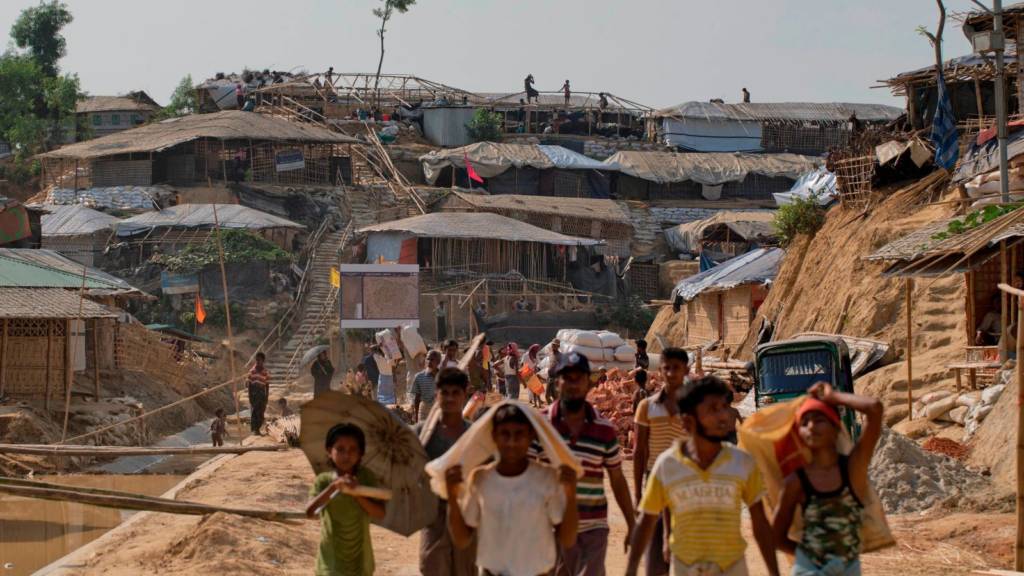Bangladesh has borne most of the brunt of Myanmar’s crackdown on Rohingya Muslims which forced the latter to flee to Bangladesh. Bangladesh is now home to over 1 million Rohingya Muslims and the country’s repeated attempts to repatriate the community back to Myanmar has failed. Bangladesh’s overcrowded Cox’s Bazaar has witnessed a spike in crime rates as the there is a simmering anger brewing in the locals against the Rohingya Muslims, prompting the Bangladesh government to shift 1,00,000 Rohingya to flood-prone island next month.
The Bangladesh government has moved to relocate the Rohingya to Bhasan Char — a Bay of Bengal island hours by boat from the mainland — to ease overcrowding in its camps at Cox’s Bazar. “We want to start relocation by early next month,” Mahbub Alam Talukder, the Relief and Repatriation Commission chief based in Cox’s Bazar, told Reuters, adding that “the refugees will be shifted in phases.“Our officials are compiling the lists of the refugees who are willing to move there,” he said, adding that as many as 7,000 refugees had by Saturday agreed to shift.
Expectedly, this move has been slammed by rights group as the island of Bhasan Char is flood-prone raising concerns over whether the island is truly habitable as the densely populated Bangladesh is staring at a crisis. In the past half-century, powerful cyclones have killed hundreds of thousands of people in the Meghna River estuary where the island is located. The island had emerged from the sea only two months ago and there are fears that the island won’t be able to withstand the annual monsoon and the subsequent violent storms. Bangladesh government had even sought the intervention of the United Nations to help repatriate Rohingya but their efforts went in vain as the nearly 3,500 Rohingya in August refused to move back to Myanmar. Any further attempts to repatriate the Rohingya to Myanmar will only get tougher as Myanmar refuses to recognise the Rohingya, a mainly Muslim minority who live primarily in Rakhine state. A recent UN report said that repatriation million Rohingya remains “impossible”
The Bangladeshi locals have also risen against the Rohingya owing to the increasing crime rate. Recently, the country witnessed widespread anti-refugee protests as the local police have blamed Rohingya refugees for the murder of Omar Faruk, a ruling party official. The Bangladesh government has also banned the use of sim cards and mobile phones in the refugee camp, in a bid to stop the smuggling of drugs across the border with Myanmar by Rohingyas. The refugees living in Rohingya camps have been found to abuse mobile phone access to conduct criminal activities such as trafficking of methamphetamine pills, worth hundreds of millions of dollars from Myanmar.
Moving them to a flood-prone island, vulnerable to devastation by cyclone shows how desperate Bangladesh is to get rid of them. Bangladesh has been seeking help from neighbours including India to help pressure Myanmar to take back Rohingya Muslims and hence, build a conducive environment for them to live a dignified life in Myanmar.
